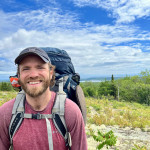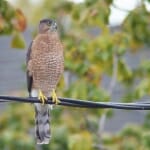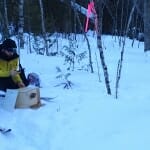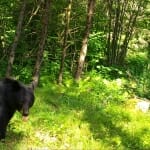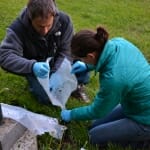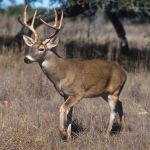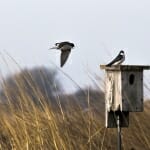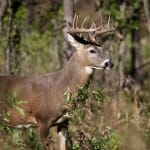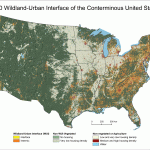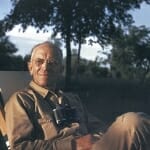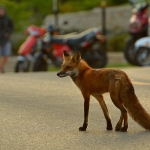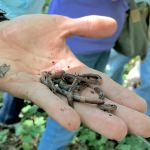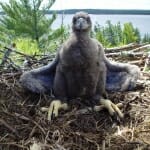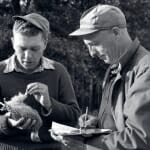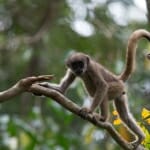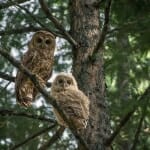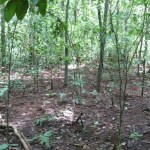Tag Forest & wildlife ecology
Wolves reintroduced to Isle Royale temporarily affect other carnivores, humans have influence as well
While many studies have been conducted to understand the effects of a carnivore reintroduction on their prey, less well studied is the effect of the reintroduction on other carnivores in the same food web, in this case foxes and martens. Read More
Inaugural Bassam Z. Shakhashiri Public Science Engagement Award recognizes excellence in outreach
A conservation scientist with a goal of finding ways to equitably protect tropical forest biodiversity and a teaching faculty member whose outreach work has led to a method for teaching visually impaired students about nanotechnology received the award. Read More
Carnivores living near people feast on human food, threatening ecosystems
While evolution has shaped these species to compete for different resources, their newfound reliance on a common food source could put them in conflict with one another. Read More
Trail cam project Snapshot Wisconsin goes statewide
Starting Aug. 9, the Wisconsin Department of Natural Resources invites volunteers from all 72 counties to apply to run a trail cam in their part of Wisconsin, and will allow the cameras to be hosted on public land for the first time. Read More
Study bolsters bats’ reputation as mosquito devourers
New UW–Madison research conducted throughout Wisconsin suggests that bats may indeed be effective exterminators of mosquitoes. Read More
CWD prions discovered in soil near Wisconsin mineral licks for the first time
New research out of the UW–Madison has, for the first time, detected prions responsible for chronic wasting disease (CWD) in samples taken from sites where deer congregate. Read More
Bird observing course an experience in finding passion for nature
In the Birds of Southern Wisconsin course, students must sometimes brave the elements to collect observations of Wisconsin’s overwintering and migratory birds. Read More
More homes built near wild lands leading to greater wildfire risk
New research out of the University of Wisconsin–Madison shows that a flurry of homebuilding near wild areas since 1990 has greatly increased the number of homes at risk from wildfires while increasing the costs associated with fighting those fires in increasingly dense developments. Read More
Aldo Leopold’s writings given voice March 3 at UW Arboretum
The 13th annual Madison Reads Leopold event on Saturday, March 3, will feature a reading of the influential conservationist’s “A Sand County Almanac” and other writings. Read More
Urban foxes and coyotes learn to set aside their differences and coexist
Diverging from centuries of established behavioral norms, red fox and coyote have gone against their wild instincts and learned to coexist in the urban environment of Madison and the University of Wisconsin–Madison campus. Read More
Invasive worms spreading in Arboretum forests, limited effects so far
Despite Asian jumping worms’ known appetite for leaf litter and tendency to change soil nutrients, researchers found limited evidence of changes to vegetation in areas where the worms have invaded the UW–Madison Arboretum. Read More
Scouting the eagles: Evidence that protecting nests aids reproduction
Reproduction among bald eagles in a remote national park in Minnesota was aided when their nests were protected from human disturbance, according to a new study. Read More
Lake Michigan waterfowl botulism deaths linked to warm waters, algae
UW-Madison researchers, with the help of citizen scientists, tracked bird deaths along Lake Michigan, and found that warm waters and algae apparently promoted the growth of botulism toxin-producing bacteria that caused them. Read More

